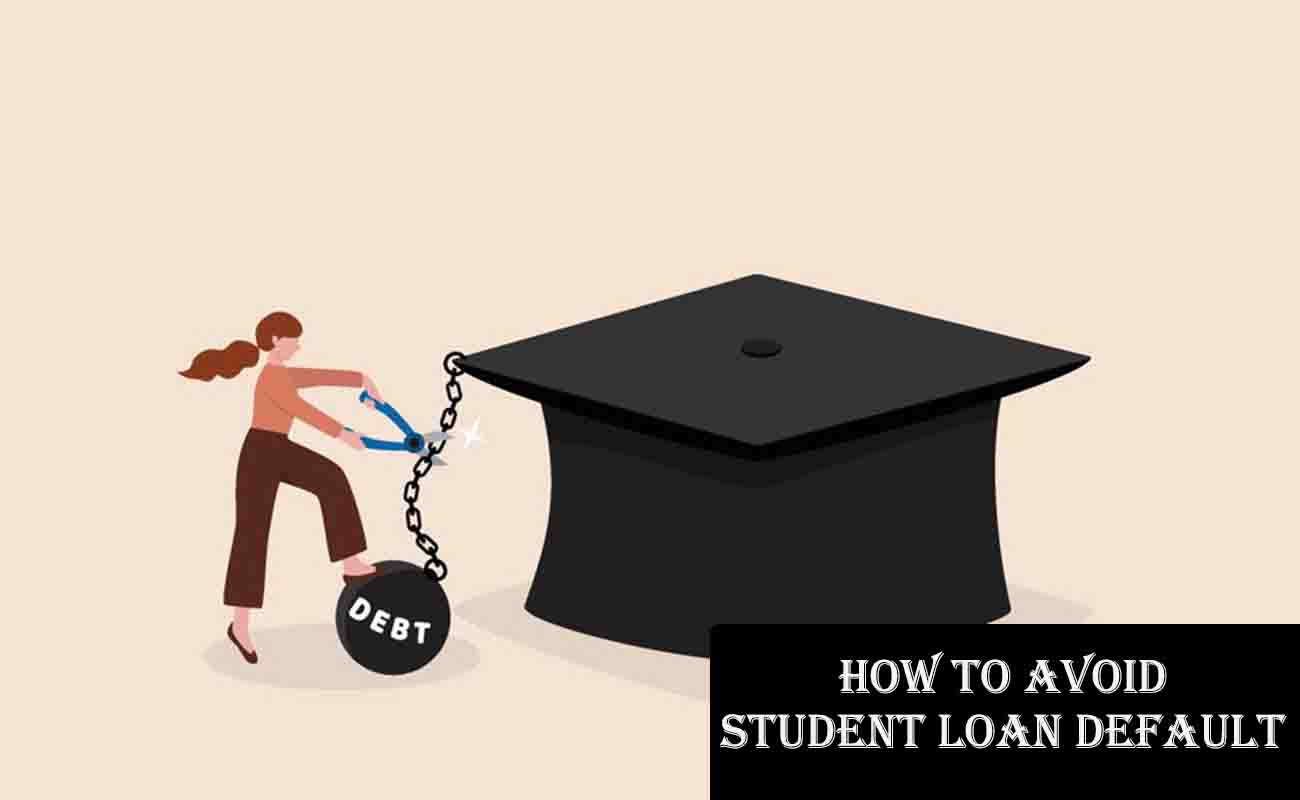I will share some tips on How to Avoid Student Loan Default in this post. As someone who has navigated the complexities of student loans, I understand how overwhelming the prospect of default can be. But fear not, because, with the right knowledge and actions, you can avoid student loan default and secure your financial future.

In this article, I’ll guide you through the steps to prevent default, explain the severe consequences of letting your loans slip into default, and answer some frequently asked questions to clear up any confusion.
Student loan default occurs when you fail to make payments on your student loans for an extended period, typically 270 days for federal loans or as defined by your private lender. This can have devastating effects on your credit score, future borrowing ability, and even your take-home pay.
The good news is that there are several strategies you can employ to avoid this pitfall. Let’s dive into how you can keep your student loans in good standing.
How to Avoid Student Loan Default
The key to avoiding student loan default is proactive management of your loans. Here are five essential steps you can take:
1. Contact Your Servicer Early
If you’re struggling to make payments, don’t wait until you’re in default to seek help. Contact your loan servicer as soon as possible. They can discuss various options with you, such as income-driven repayment plans, deferment, or forbearance, which can make your payments more manageable.
For federal loans, you can find your servicer’s contact information on the Federal Student Aid website. For private loans, check your loan documents or account portal. Acting early can prevent your loans from entering delinquency, which happens after 90 days of missed payments.
2. Explore Repayment Options
For federal loans, consider enrolling in an income-driven repayment plan, such as the Saving on a Valuable Education (SAVE) plan. This plan adjusts your monthly payments based on your income and family size, and it may even forgive any remaining balance after a certain number of payments.
Other income-driven plans, such as Pay As You Earn (PAYE) or Income-Based Repayment (IBR), are also worth exploring. According to the Consumer Financial Protection Bureau, these plans can significantly reduce your monthly burden.
If you have private loans, reach out to your lender to see if they offer hardship programs or if you can refinance your loans to get a lower interest rate or more favorable terms. Refinancing can sometimes lower your monthly payments, making it easier to stay on track, but be cautious as it may extend your repayment period.
3. Consider Deferment or Forbearance
If you’re temporarily unable to make payments, deferment or forbearance might be an option. Deferment allows you to postpone payments without accruing interest on certain types of federal loans, such as subsidized loans. Forbearance lets you pause payments, though interest may continue to accrue, increasing your overall debt.
These options are available for both federal and private loans, but the specifics vary, so check with your servicer. For example, NerdWallet notes that many private lenders offer temporary payment relief to help borrowers catch up.
4. Check Your Loan Status Regularly
Stay on top of your loan status by logging into your account on the Federal Student Aid website or your private lender’s portal. You can also check your credit report to ensure there are no surprises. You’re entitled to a free credit report weekly from each of the three major credit bureaus at AnnualCreditReport.com. This can help you catch any issues early, such as missed payments reported to credit bureaus after 90 days of delinquency.
5. Utilize Additional Help Resources
If you’re feeling overwhelmed, there are numerous resources available to help you. Organizations like the Consumer Financial Protection Bureau, National Foundation for Credit Counseling, and Student Borrower Protection Center offer advice and assistance for student loan borrowers. You can also explore free virtual workshops or one-on-one appointments through these organizations to get personalized guidance. Bankrate suggests reaching out to vetted resources to avoid scams promising quick fixes.
| Resource | Best For |
|---|---|
| Consumer Financial Protection Bureau | Advice on repayment plans, forgiveness programs, and dispute resolution |
| National Foundation for Credit Counseling | Comprehensive financial review, including student loan options |
| Student Borrower Protection Center | Advocacy and policy information for borrowers |
| Nonprofit Credit Counseling Services | Budget counseling and help with repayment paperwork |
Consequences of Student Loan Default
Understanding the severe consequences of default can motivate you to take action to avoid it. Here’s what can happen if your loans go into default, based on information from Bankrate:
- Credit Score Damage: Defaulting on your student loans can significantly lower your credit score, making it difficult to get approved for credit cards, car loans, mortgages, or even utilities and cell phone plans. A lower credit score can also lead to higher interest rates or the need for a co-signer.
- Immediate Full Payment: For federal loans, the entire unpaid balance and accrued interest become due immediately through a process called “acceleration,” which can be a massive financial burden.
- Loss of Borrower Protections: Once in default, you lose access to federal loan benefits like deferment, forbearance, and income-driven repayment plans. You also become ineligible for additional federal student aid if you plan to return to school.
- Wage Garnishment: The government can garnish up to 15% of your disposable pay without a court order, and private lenders can pursue wage garnishment through legal action.
- Seizure of Federal Benefits: Your tax refunds, Social Security benefits, and even disability checks can be withheld to pay off defaulted federal student loans.
- Legal Action: Both federal and private loan servicers can sue you for the debt, and you may be responsible for court costs, collection fees, and attorney fees.
- Transcript Withholding: Although schools are not allowed to withhold transcripts for defaulted federal loans, some might still try, so it’s important to know your rights.
- Late Fees and Interest: Late fees and interest continue to accrue, increasing your overall debt.
These consequences can impact your finances for years, making it critical to take proactive steps to avoid default.
FAQs About Student Loan Default
Here are answers to some common questions about student loan default:
1. What is the difference between delinquency and default?
Delinquency occurs when you miss a payment but are not yet in default. For federal loans, you’re considered delinquent after 90 days of missed payments, and default occurs after 270 days. For private loans, the timeline can vary, so check your loan’s promissory note, as noted by NerdWallet.
2. Can I get out of default if my loans are already in default?
Yes, for federal loans, you can rehabilitate your loans by making nine on-time payments within 10 months or consolidate them into a new loan that is not in default. For private loans, you may need to negotiate a settlement with your lender, as suggested by Bankrate.
3. Will defaulting on my student loans affect my ability to go back to school?
If you have federal student loans in default, you may not be eligible for additional federal student aid until you resolve the default. Private loans might not have the same restrictions, but defaulting can still impact your credit, making it harder to get approved for more loans.
4. Is there a statute of limitations on student loan debt?
For federal student loans, there is no statute of limitations, meaning the debt can be collected indefinitely. For private student loans, the statute of limitations varies by state, typically ranging from 3 to 10 years, but this only applies to the lender’s ability to sue you, not to the debt itself.
5. What should I do if I’m contacted by a debt collector for my student loans?
Verify the debt collector’s identity and ask for written validation of the debt. You have rights under the Fair Debt Collection Practices Act. You can dispute the debt if you believe it’s inaccurate and consider seeking help from a consumer protection agency or nonprofit credit counseling service.
Conclusion
Avoiding student loan default is crucial for maintaining your financial health and future opportunities. By staying proactive, communicating with your servicer, and exploring all available options, you can keep your loans in good standing. Remember, it’s never too late to seek help, and there are resources available to guide you through the process.
